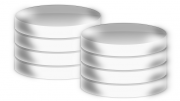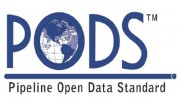Sniff test from the wiktionary
- (idiomatic) An informal reality check of an idea or proposal, using one’s common sense or sense of propriety.
Database model from the wiktionary
- A fundamental way of organization of data in a database, such as hierarchical model, network model or relational model.
Database model from The School of Hard Knocks
- An attempt to cram every possible piece of data into some sort of system no matter what common sense says about organization!
Data models, to me, are like the homegrown idea of Suburbia. A grand idea of mass produced cookie cutter ideas, services, and homogeny. It has a point, it has a life, and maybe still has a function. The current trend of more urban renewal maybe a trend we see with the standard database model. Suburbia was at many times a life of conformity, rules that apply to not your family but you have to observe them despite your feeling, and what appears to be cost affordable homes.
Do we take into account how the true cost of this existence? Commuting hours a week to job sites, HOAs, Big Box Retail, Network Marketing, no more Saturday night is for fighting because the neighbors are 22 feet away.
How close is this to standardized data models. Maybe closer than we think, maybe it is analogous. Why has PPDM and PODS and others become the ideal we measure our own data against? One, these are large companies, that have done a great job in trying to tackle a very large real issue. Two, they have helped other large companies design applications that can align with your data faster due to the standardization. Keep in mind, they are just suggestions. A way to help start organizing data.
With Suburbia you may shop around for right subdivision and even right suburb. And after time happens you may find your family does not conform to that neighborhood. But, the cost of moving many times just can’t happen (thank you subprime crisis). So, you press on, conforming, finding thing to adjust to fit your life in this defined box. Why do I have a shed for a mower and I pay someone to mow my grass. Is the shed now just a null value in a box that I do not participate in because I manage my life differently. Hopefully that is enough reference to start seeing the similarities. If you are in a bad data model experience than please comment with on all the examples I missed. Should be fun.
As a consultant and as someone who has been on the other side of the desk, I have always believed that whenever possible we should roll our own. We need to as professionals understand our data and how our culture or company needs to utilize it. Attempting to use real world need, other data models as suggestions, and starting small with the intent to be scalable as growth happens. I have been on the backend of multi-year data base implementations, that many times require more staff than the beginning, and more software cost than before. It is just something to think about. In the current environment Downsizing may be a not so natural phenomena. Maybe try to look at that 4 bedroom flat next to the neighborhood tennis court data model is truly costing you vs the value you get for the utilization of it.




Be the first to comment on "Database Models"